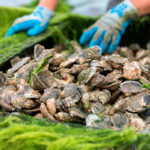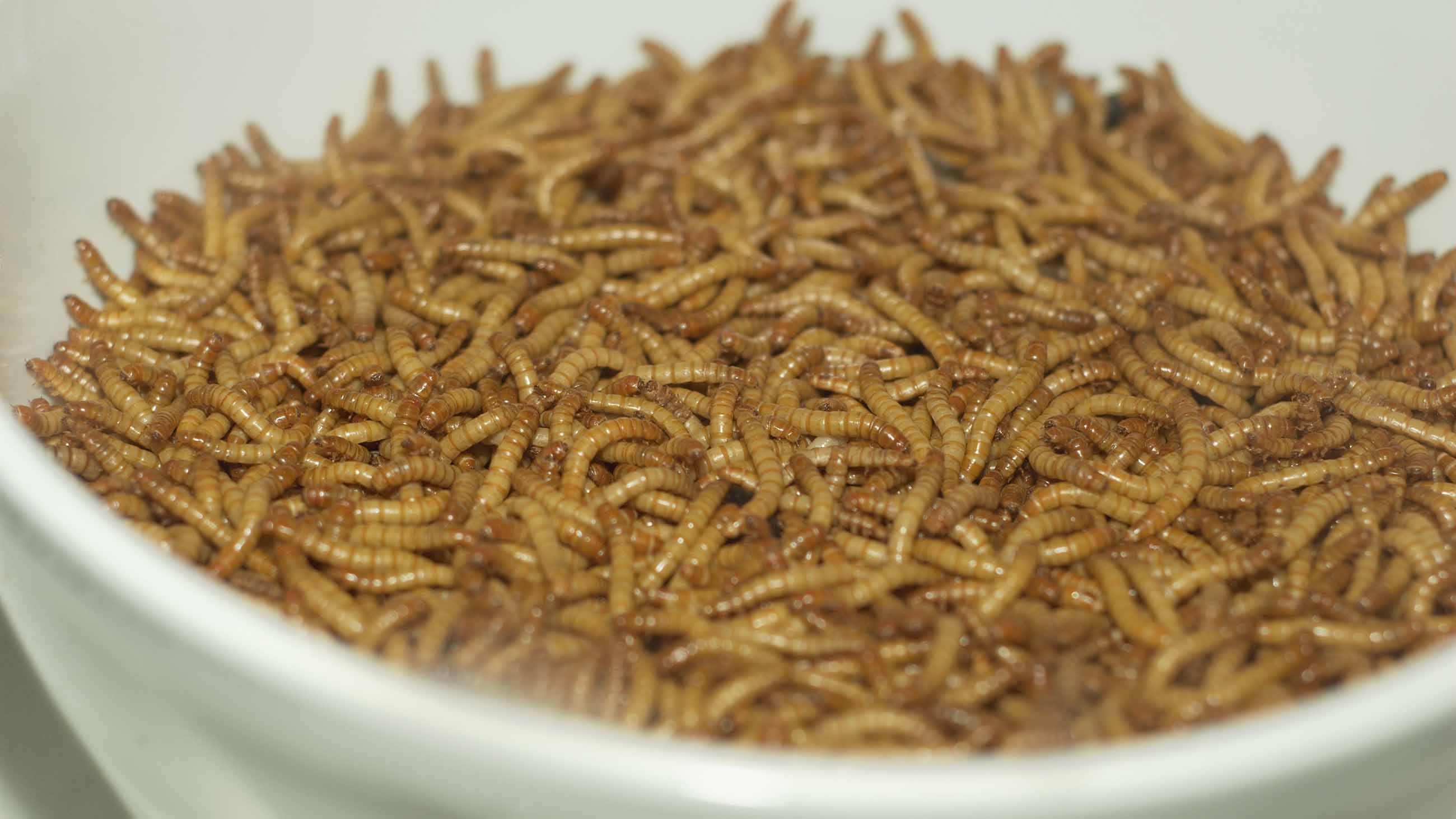To Save the Planet, Eat More Bugs?
[wtr-time]
In late 2013, Arnold Van Huis, a professor of tropical entomology at Wageningen University in the Netherlands, conducted an experiment. He prepared two batches of meatballs: One was made entirely from beef, while the other was a 50-50 blend of beef and ground mealworms. Test subjects didn’t know which meatballs were which, and when asked which they favored, nine out of 10 chose the one mixed with mealworms.
Van Huis, a long-time advocate of entomophagy, or the practice of eating bugs, believes this could be the answer to the global food crisis, touched off by shrinking ranch land and water resources and climate change.
For most of us, eating insects is an absurd notion. If you ask a Westerner to name the most disgusting food on earth, there is a good chance that either a cricket or a grub will be mentioned. Yet more than 2,000 species are considered edible and an estimated two billion people worldwide already consume insects as part of their regular diets — especially in the Asia-Pacific region, where entomophagy has long been accepted.
There may be good reason for the rest of us to follow their example.
What we eat and the way it is produced has a huge impact on the planet. Our dietary habits — rich in animal protein — are among the biggest contributors to global warming. According to the Washington, D.C.-based World Resources Institute, traditional livestock farming is responsible for 14 to 18 percent of human-caused greenhouse gas emissions globally. And with the world population expected to reach 9.8 billion by the middle of the century — an increase of roughly 30 percent — the environmental challenges will only become more pressing. To feed that many people, the U.N. estimates that global food production must double.
For most of history, the problem of more mouths to feed was solved simply by farming more land. Today that option is no longer viable. At the landmark climate conference in Paris in 2015, 195 nations agreed to limit global warming to no more than 2 degrees Celsius above pre-industrial levels. A sharp increase in global food production will cause carbon emission to spike and make that target impossible to meet, spelling disaster for the planet.
Insects, however, offer a food source that can feed the planet while keeping carbon emissions in check. Unlike cattle, which eat low-nutrient grass and release methane in the process, insects are cold-blooded and thus require less energy to maintain their internal body temperatures. This means they are extremely efficient at converting their food into protein. Crickets, for instance, need 1.7 kilograms of feed to produce 1 kilogram of meat, and around 80 percent is edible. By contrast, a cow requires 8 kilograms of feed to produce the same amount of meat, and just 40 percent can be consumed.
A recent study published in the journal Global Food Security found that replacing half of the meat eaten worldwide with crickets and mealworms would slash farmland use by a third, significantly reducing greenhouse gas emissions.
“There’s no doubt that a wider adoption of entomophagy could help to reduce greenhouse gas emissions from agriculture,” says Peter Alexander, a postdoctoral researcher at the University of Edinburgh and a senior researcher at Scotland’s Rural College, who was the lead author of the study. “The benefits would arise if the consumption of insects displaces the consumption of conventional animal products.”
And there is a small but growing segment of adventurous diners who seem to agree. Globally, the consumption of edible insects generated more than $33 million in 2015 and is expected to reach $522 million by 2023. Of course, this is merely an appetizer portion when compared to the size of the global processed meat market, which racked up $714 billion in revenue in 2016 and is projected to exceed $1.5 trillion in the next five years.
Beyond their positive environmental impact and market potential aside, insects also have good nutritional value, similar to that of livestock. “Nutritionally, insects are quite excellent,” argues Dennis Oonincx, an entomologist at Wageningen University. “For instance, several aquatic insect species are rich in long chained omega-3 fatty acids, which they obtain from their diet, while iron content of several species is similar to beef.”
And even entomophagy’s greatest champions acknowledge that the field requires more study in order to determine the full range of health and nutritional benefits and how to produce insects at a mass scale for human consumption. “We need to understand how to efficiently produce the insects, the benefits from alternative species, processing and supply-chain issues, and of course issues around consumer attitudes and behaviors,” says Alexander at the University of Edinburgh. “This requires a multidisciplinary effort, including not only entomologists but also psychologists, nutritionists, environmental scientists, and economists.”
It’s the consumer attitude part of the equation that may be toughest to crack. The greatest obstacle to insects becoming a significant part of our diets is arguably the “yuck” factor. “It is not a social norm to eat insects in the West. The thought of eating insects for many causes disgust, hence their use on reality TV shows,” says Alexander. “Such perceptions are hard to change, and any change is likely to be a slow process.”
But once people get over their resistance to the idea of eating bugs, they often discover that insects are not only nutritional, but tasty too, Alexander maintains.
For example, a 2014 Belgian study surveyed 189 people after they had tasted crickets and mealworms. Among 26 to 45-year-olds, 92 percent said they would eat insects again, while two-thirds declared they’d consider cooking bugs at home. This is admittedly a small case in point, but encouraging nonetheless to entomologists.
In some respects, eating insects still looks like a long shot. But things are bound to change, according to Marcel Dicke, a Dutch professor who in 2010 gave a widely-viewed TED talk titled “Why not eat insects?” and co-author of “The Insect Cookbook.”
“Many people now tell me they will never ever eat insects. And that’s fine. Everyone has his own opinion,” he says. “But the way things are developing at the moment makes me feel they are going the right way, and maybe, in 20 years’ time, when we meet again, we’ll discuss this over a bowl of mealworms.” Yum.
Marcello Rossi is a freelance journalist based in Milan. His work has been published by Al Jazeera, Smithsonian, Quartz, and World Politics Review, among other outlets.










